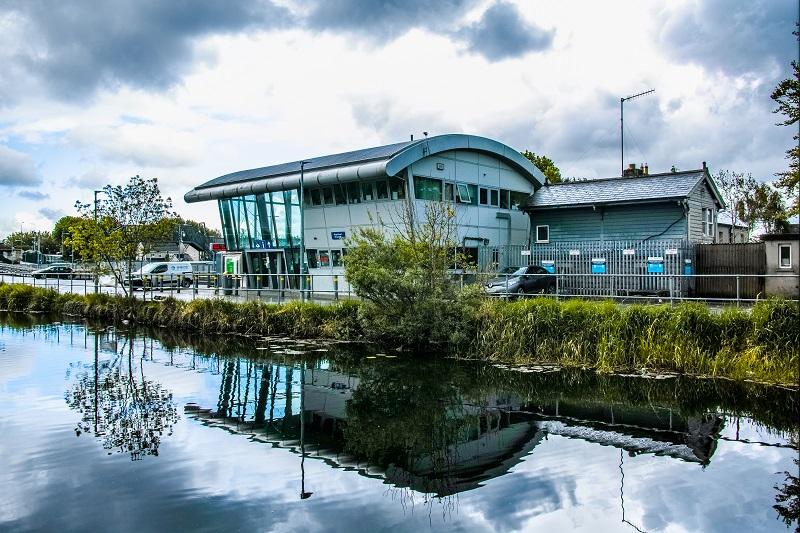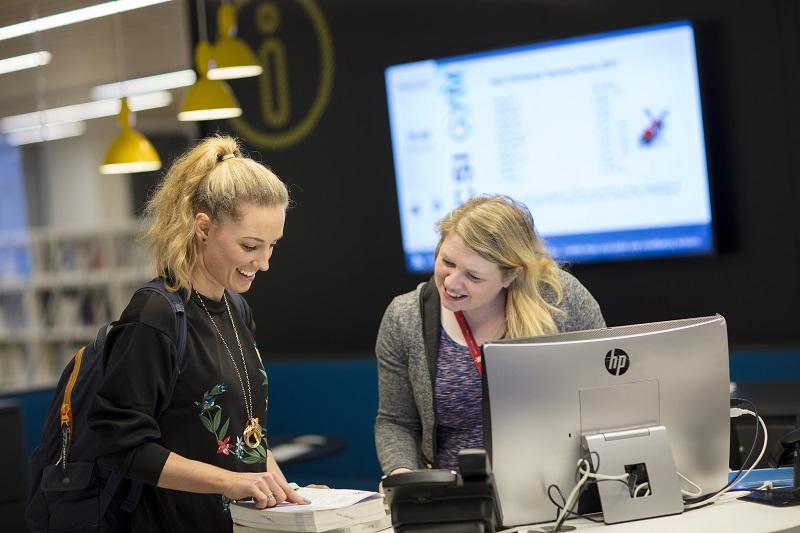Before you arrive, here's more information about starting at OnCampus Ireland.
More information can be found on our Pre-Arrival document.
If you have any further queries, please contact the OnCampus Ireland team: [email protected]
How to get to OnCampus Ireland
An airport pick-up service can be a good option for a convenient transport method straight to your destination. A driver will meet you at the airport and transport you to either the OnCampus Ireland centre or to your accommodation, whichever you prefer.
The cost for the transfer will vary depending on your chosen destination airport and campus.
The address for OnCampus Ireland is: OnCampus Ireland, Moyglare Road, Maynooth, County Kildare, Ireland
OnCampus have identified one of the many providers you can use for your taxi transfer:
Dial A Cab has many years of experience in meeting international language students arriving at Dublin Airport. The taxi driver will meet students at arrivals with a name sign and assist them with luggage to the taxi. Dial A Cab's professional drivers will always wait and make sure that, for students travelling to a host family, that the family is home and expecting the student. For students staying at a student accommodation, the drivers will always wait until the student is checked in.
You can access Dial A Cab's website and begin the booking process here.
Airports are busy places so, when completing your taxi booking online, we recommend choosing a longer wait time if possible. This will allow you ample time to exit the plane, clear passport control and collect your luggage. If you do get through quicker than expected, you can make use of the airport's Wi-Fi, food and drink vendors, and toilets. You can also call your driver and let them know you are ready and they may be able to arrive quicker than the agreed pick-up time. The taxi companies will track your flight and will be aware of any delays. After completing your booking, you will receive a confirmation from the taxi company which will include details of where to meet your taxi driver upon arrival.
If the airport you are flying into is not listed, or you are arriving into Ireland another way and need some advice, please contact us at [email protected] and we can assist you.

Visa and Medical Insurance
Useful websites:
Most international students need to apply for a study visa before arriving to study in Ireland. The visa permits you to pursue a full-time educational course for longer than three months in Ireland. You can apply for a study visa up to 3 months before your date of travel to Ireland. If you are visiting another State before travelling to Ireland, you must have the relevant visa for that State in your passport before applying for an Irish visa.
We will ask for visa-related information at the application stage to advise and provide guidance on how to secure the visa to study our programme. Contact us if you need to clarify anything about applying for the correct visa to come to study in Ireland. Students should also contact their local Irish Embassy for information. You can also access the Irish Government guide here.
The College cannot give any guarantees for successful visa applications.
For more details, visit the EU Visa Advice page's section on Ireland.
You are required to have medical insurance for the duration of your programme at the College. This must be purchased in advance of programme commencement to obtain a student visa to enter Ireland. Students can purchase medical insurance through the College, or you can arrange your own medical insurance provided it is in English. Students from the EU should travel to Ireland with their European Health Insurance Card to cover public medical care.

Cost of Living in Ireland
Ireland can be an expensive place to live so the following may help to reduce your costs of living when here.
- Student discounts may be available so take your student ID card with you everywhere. Use the Student Leap Card when using public buses, trains, and trams for the lowest fares.
- Work part-time in compliance with your visa conditions (i.e., no more than 20 hours during term time or 40 hours in approved holiday periods) which can help offset living costs.
- Live by your own budget by setting aside specific sums for each of the following each week. By spending no more than you have allowed yourself, you will easily manage your money. We suggest something like this to get you started with a weekly budget:
